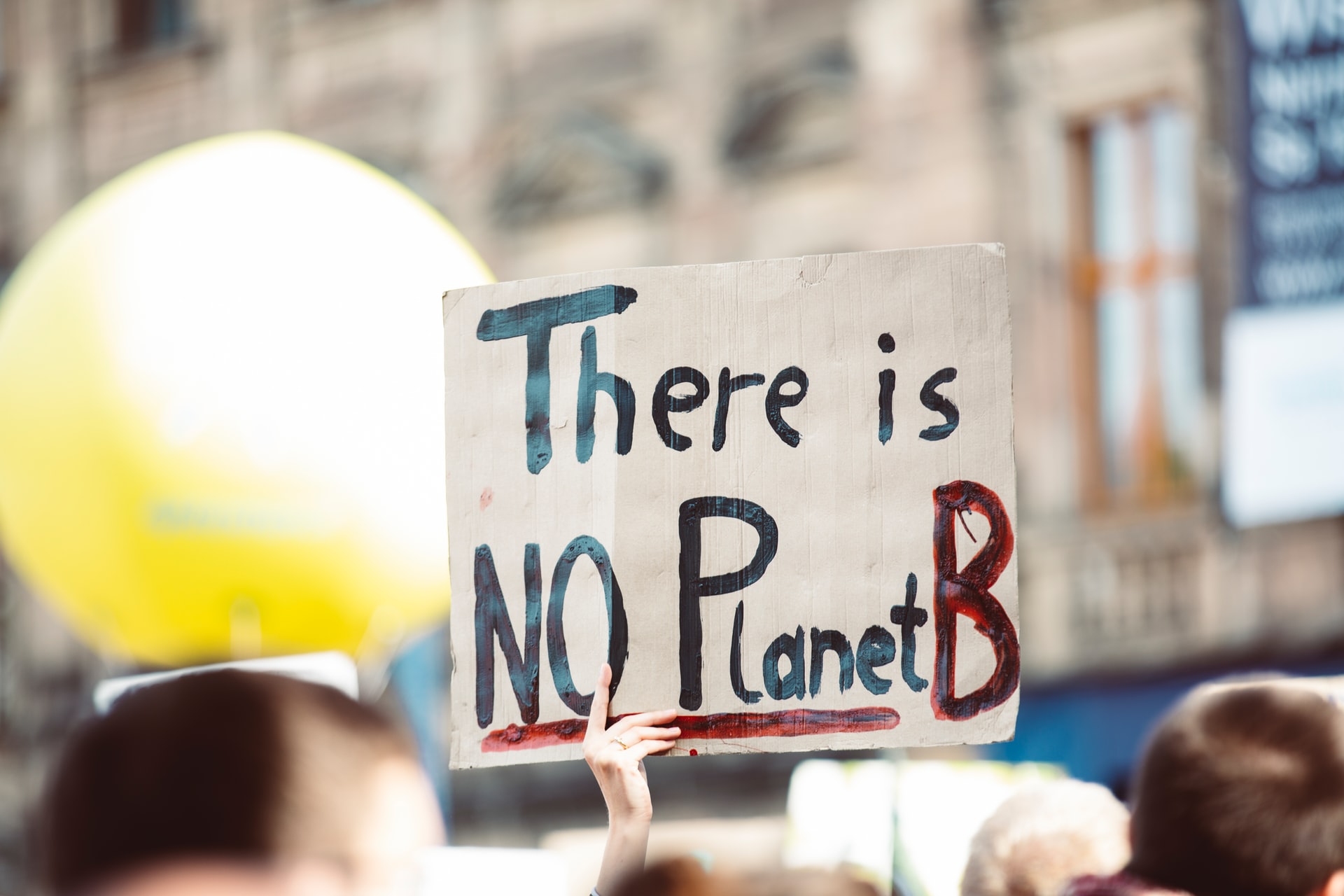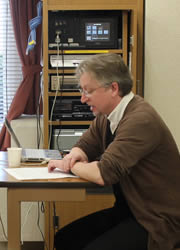First of all, a release of animus and ressentiment, as I hear in my imagination a chorus of doomsayers:
Hope is extinguished, hope dies, the fires are quenched, the lights go out – families, people, animals, insects, millions and of millions of species are wiped out; we are no more, the 6th mass extinction is upon us.
That hope dies, is the message that underlies the motto of Extinction Rebellion: ‘Hope dies, Action begins.’ When I am less seething, I reflect on that message. I say to myself that hope dies and action begins is a good sign because the Deleuzians and Spinozists amongst us decry hope as a sad passion. But, when I am in the company of Jem Bendell’s essays, for example, his Deep Adaptation: A Map for Navigating Climate Tragedy (2018) and Hope in a Time of Climate Chaos: A Speech to Psychotherapists (2019), it is all sad passions. Jem Bendell, a Professor of Sustainability Leadership at the University of Cumbria, urges us to face the darkness of the end of the world and proclaims – what we all know – that there can longer be an expectation that the climate will improve. In his work, we find a feverish anticipation that catastrophe and apocalypse are imminent and that the world is in terminal decline. The world as we know it will be no more. There is simply no more sustainability. Extinction of the human race is ‘real possibility,’ he says. However, there can be deep adaptation, or ‘resilience, relinquishment and restoration’? But the ‘deep’ of this deep adaptation makes me exceedingly uncomfortable. It feels like a new opium of the people, another fetishistic disavowal. I suspect that if my cynicism is left unchecked, I will conclude that Bendell wants to be the Pied Piper of the town of Pied Cow in Friedrich Nietzsche’s Thus Spoke Zarathustra.
No. My emotions got the better of me. Unfortunately, I listened to Bendell before I read him properly. In the time of the Covid-19 outbreak, I listened to him when travelling into Tokyo on my commute – and my irritation levels rose. The trauma of it all got the better of me. I disliked listening to what he had to say, but I persevered in the circumstances. My distaste did not lessen. I disliked his language of spirituality and sacredness and togetherness and wholeness and interpersonal freedom because it feels like he wants to insist on a desperate hope but can not; to invoke some transcendental aspect to life on this planet but can’t. I came away feeling that I don’t need someone to do my deep thinking for me and I don’t want a return to transcendental deepity.
Let me say why. Bendell talks about the common delusions – again very Spinozist – but principally the delusion that our system of global economics is the only one we have: ‘there is no alternative.’ How this implies an end to sustainability I needed to understand. So I went back to his inaugural lecture – not a very good lecture, I must say. I learned he has the intellectual coordinates of Gandhi and Ruskin, Wordsworth and the Romantics. But I wonder how he goes from there to relinquishment or ‘letting being be’ (or rather his letting beings not be) as a letting go of consumption. This implies that any political response to the climate crisis is fatal; instead, we must return to the local community and sustain that place. All very good – and Bendell is onto something when he evokes a vision of the everyday that is kind, curious, creative. And to search for new ways of being and acting is right on – but to talk of cultivating mindfulness, or the spiritual, in the face of disruption, through play or sports or through local currencies or bartering systems is derivative and timeworn. It is found in 19th century versions of anarchism and anarcho-communism. But by his own fatal logic he is debarred from thinking this more revolutionary path. When he speaks of the need for a new kind of solidarity and the rejection of common delusions, it makes me think about a new form of communism. Why not evoke communism – bio-communism, geo-communism –for a new communal spirituality? Sadly, he does not go there.
I do understand that he wants a pacifist revolution, a change in mentalities if you like, and again this is right, but in that case, why not turn to Leonardo Boff’s The Path of Hope: Fragments from a theologian’s journey (1993) or some other spiritual ecology? I understand that he wants a cultural renaissance, but, of course, that is what the Pope wants as well, as Boff rightly notes in Francis of Rome & Francis of Assisi (2014). I can’t go there. When he speaks of a human psyche radically divorced from habitat, why not propose a Guattarian fourth ecology – material, immanent ecology – in an extrapolation of The Three Ecologies (1989). However, he clouds the issue by, as it were, re-inverting Marx’s inversion of Hegel. He invokes the mystical shell rather than the rational kernel. But it is the shell of the earth that is cracked. He knows this much, but he ignores his precedents in thinking: Teilhard de Chardin’s The Phenomenon of Man (2008), Vladimir Vernadsky’s The Biosphere (2014), and more recently Bernard Stiegler’s Nanjing Lectures (2020) and Yuk Hui’s The Question Concerning Technology in China (2018), all of which contemplate a new skin – or shell – for the planet. But de Chardin and Vernadsky fail in their projects because they want to heal the mystical shell rather than to get at the real problem: human beings, or the domination of human beings by each other, and of Nature by human beings. I say that only when we eradicate domination will there will be a turn to a new sensibility. This is why Félix Guattari’s The Three Ecologies remains essential reading.
But Bendell again and again says that it is ‘we’ who suffer a global risk to our humanity: it is not nature as such that is at stake but our lot. This is speciesism at its achingly worst. There is no accent on Nature, on the animals or the insects, but only on the ‘we’ who have lost control of the world. In his Deep Adaptation paper, Bendell says: ‘We are not in control and never were.’ Whoever thought humans were in control of Nature? How could that be so? That would mean that ‘we’ would control life, which is preposterous! Though Bendell is onto something when he divines a deficit of agency in the face of the ecological crisis, his rebranding of deep ecology as deep adaptation does not work. James Lovelock is much more articulate and precise, and indeed much has been said by Slavoj Žižek on disavowal in the The Ticklish Subject: The absent centre of political ontology (1999) and Bernard Stiegler on existential crisis in Dans la Disruption: Comment ne pas Devenir Fou? (2018). Žižek, for example, argues that we should avoid at all costs the trap of an ‘ecology of fear,’ that is, a hasty, morbid fascination with looming catastrophe. Sadly, Bendell does precisely this. He hums a mantra of resilience, relinquishment and restoration against a backdrop of breakdown, grief, collapse, disruption, vulnerability, trauma, risk, despair, fear, sadness, anger, futility, loss of hope, widespread panic, alienation, depression. (He would make a very bad Deleuzian.) His search for a new way of being in the world based on transcendental concepts – joy, care, love and eco-solidarity – is tormented by very material uncertainties and emotions, and a nagging doubt that a bright vision of the future is simply delusional.
For me, a social ecology of this trauma should not seek reconciliation in the dying days of the planet. It should fight domination in all of its forms, internal and external. It should stand against Bendell’s indulgent humanism of a group hug and a die-in as the asteroid falls from the sky (echoing Timothy Morton’s advocacy of letting-go in his 2012 book The Ecological Thought) – which constitutes what Žižek in Astra Taylor’s documentary Examined Life (2010) rightly calls a collective disavowal. I have no interest in teaching my children and students to learn to die in the Anthropocene. I cannot follow Bendell and Extinction Rebellion. I have no time to offer reflections on the End of a Civilization. My task is to build a new world. We can begin to do this by imagining what a geo-communism might be like.
Disclosure statement:
Joff P.N. Bradley does not work for, consult, own shares in or receive funding from any company or organization that would benefit from this article, and has disclosed no relevant affiliations beyond their academic appointment.




